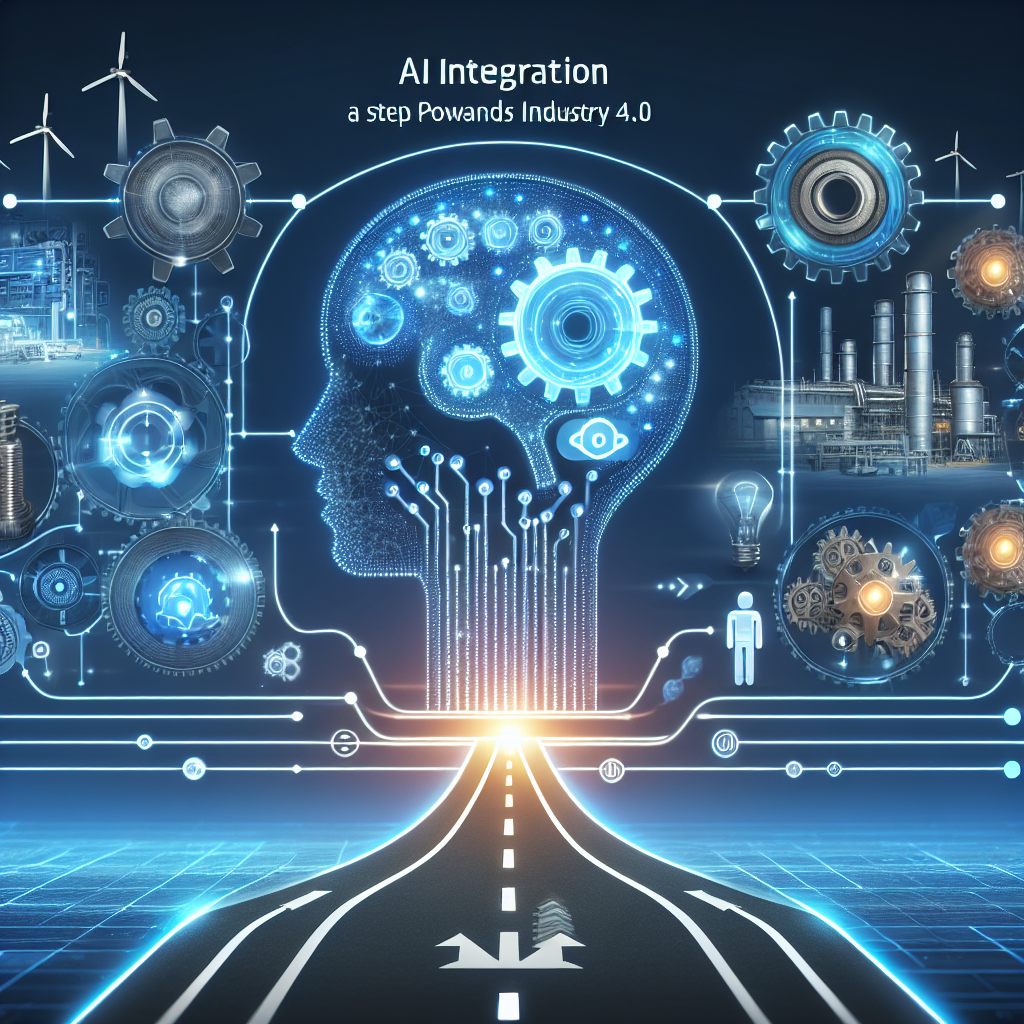In recent years, the integration of Artificial Intelligence (AI) into various industries has been gaining momentum. AI has the potential to transform the way businesses operate, improve efficiency, and drive innovation. With the advent of Industry 4.0, which emphasizes the use of advanced technologies to digitize manufacturing processes, AI integration has become a crucial step towards achieving the goals of this new industrial era.
AI technologies, such as machine learning, natural language processing, and computer vision, have the ability to analyze vast amounts of data, make predictions, and automate tasks that were previously performed by humans. This can lead to significant improvements in productivity, quality, and cost savings for businesses across different sectors.
One of the key benefits of AI integration in Industry 4.0 is predictive maintenance. By using AI algorithms to analyze data from sensors and other sources, businesses can predict when equipment is likely to fail and proactively schedule maintenance before a breakdown occurs. This can help prevent costly downtime and improve overall equipment efficiency.
Another area where AI integration is making a significant impact is in quality control. AI-powered systems can analyze images and detect defects in products with a high level of accuracy, reducing the need for manual inspection and improving product quality. This can result in cost savings and increased customer satisfaction.
AI integration also enables businesses to optimize their supply chain operations. By using AI algorithms to analyze demand forecasting, inventory levels, and transportation routes, businesses can make more informed decisions and improve efficiency in their supply chain management. This can lead to reduced costs and improved customer service.
Overall, AI integration is a key enabler of Industry 4.0, as it allows businesses to harness the power of data and advanced technologies to drive innovation and improve operational efficiency. However, there are some challenges that businesses may face when implementing AI integration, such as data privacy concerns, lack of skilled personnel, and integration with existing systems. By addressing these challenges and investing in the right technologies and talent, businesses can successfully integrate AI into their operations and reap the benefits of Industry 4.0.
FAQs:
Q: What is AI integration?
A: AI integration refers to the process of incorporating Artificial Intelligence technologies, such as machine learning and natural language processing, into business operations to improve efficiency, automate tasks, and drive innovation.
Q: How can AI integration benefit businesses in Industry 4.0?
A: AI integration can benefit businesses in Industry 4.0 by enabling predictive maintenance, improving quality control, optimizing supply chain operations, and driving innovation through data analysis and automation.
Q: What are some challenges businesses may face when implementing AI integration?
A: Some challenges businesses may face when implementing AI integration include data privacy concerns, lack of skilled personnel, and integration with existing systems. By addressing these challenges and investing in the right technologies and talent, businesses can successfully integrate AI into their operations.
Q: How can businesses address data privacy concerns when integrating AI?
A: Businesses can address data privacy concerns when integrating AI by implementing robust data security measures, ensuring compliance with regulations such as GDPR, and obtaining consent from customers before using their data for AI purposes.
Q: What skills are needed to successfully implement AI integration in business operations?
A: Skills needed to successfully implement AI integration in business operations include data analysis, machine learning, programming, and domain expertise in the specific industry. Businesses may also need to invest in training and upskilling their employees to ensure successful AI integration.
In conclusion, AI integration is a crucial step towards achieving the goals of Industry 4.0. By leveraging the power of AI technologies, businesses can improve efficiency, drive innovation, and stay competitive in today’s rapidly changing business landscape. By addressing challenges such as data privacy concerns and skills shortages, businesses can successfully integrate AI into their operations and reap the benefits of this new industrial era.

